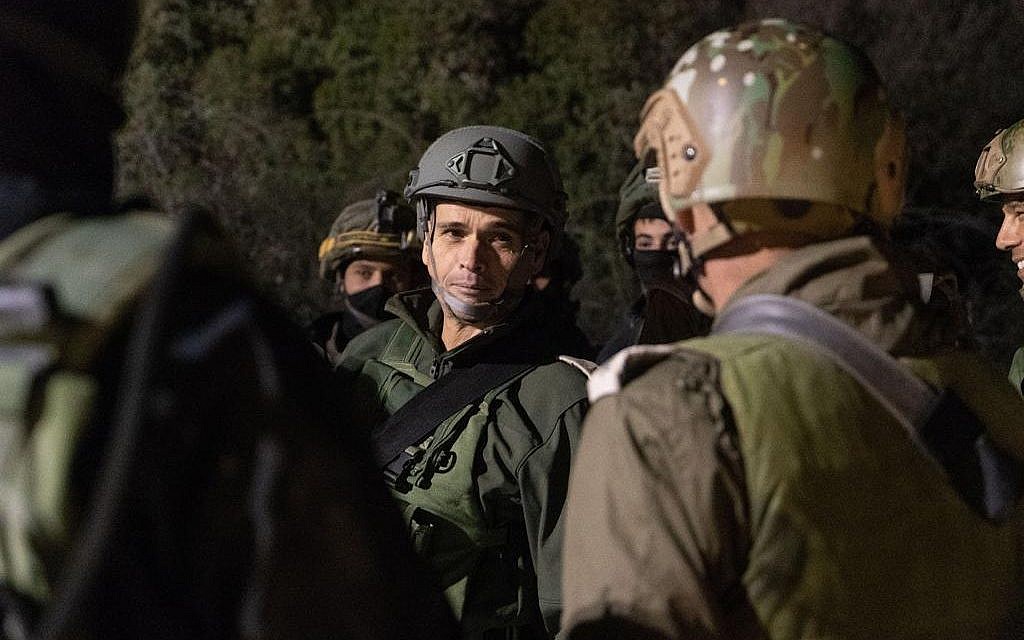
Army finds, destroys fifth attack tunnel from Lebanon
The Israeli military announced Wednesday it had discovered a new cross-border attack tunnel from Lebanon, the fifth such subterranean passage it has uncovered since launching an operation to destroy the Hezbollah-dug tunnels.
The latest tunnel was dug from Ayta ash Shab, a village across the border from the farming community of Shtula, and entered Israeli territory, according to the Israel Defense Forces.
The IDF said the tunnel was found “a number of days ago” and has now been destroyed.
Regional council heads and the United Nations’ peacekeeping force in Syria were notified ahead of the explosion, the military said.
The statement did not mention Hezbollah, the Lebanese terror group Israel has accused of digging the other tunnels.
The IDF reiterated it holds Lebanon’s government responsible for the cross-border tunnels.
“This is another blatant violation of UN Resolution 1701 and of Israeli sovereignty,” it said, referring to a UN Security Council resolution ending the 2006 Lebanon War, that requires all armed groups besides the Lebanese military to remain north of the country’s Litani River.
The military also said it would continue its efforts to locate and destroy attack tunnels from Lebanon.
The announcement by the military comes a day after Prime Minister Benjamin Netanyahu said the military was close to wrapping up the operation to find and eliminate the tunnels.
The IDF launched Operation Northern Shield earlier this month to track down the tunnels, which it says Hezbollah planned to use in an opening strike in a future war with Israel.
“This operation is almost entirely behind us,” Netanyahu said in a statement released by his office.
“There is exceptional work being carried out here that has disarmed the Hezbollah tunnels,” he said. Hezbollah “invested heavily in [the project] and we destroyed it.”
Netanyahu made the comments while touring the northern border with other lawmakers, as they unofficially kicked off a campaign for re-election in which national security is expected to be a central issue.
Read More: Times of Israel
